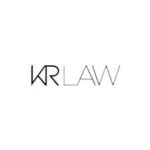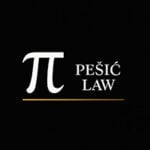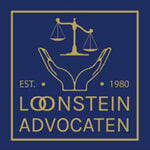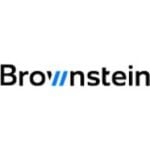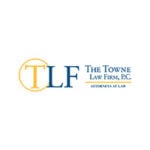-
What is the legal definition of gambling?
According to the Finnish Lotteries Act (1047/2001) (“Lotteries Act”) lottery means an activity in which participants may win a prize of monetary value based in full or in part on chance and in which there is a charge for participation. Gambling means a lottery in which players can win money.
-
What legislation applies to gambling? Please provide a summary of the legal/regulatory framework.
The Lotteries Act 1047/2001 is the cornerstone; it is complemented by the following legislation:
- Government Decree on Lotteries (1345/2001).
- Government Decree on Games Operated by Veikkaus Oy (1414/2016).
- Government Decree on the Advisory Board on Gambling (658/2017).
- Ministry of the of ’s Decree on rules of Veikkaus’ games (1979/2023)
- Lottery Tax Act (552/1992).
- Criminal Code (39/1889).
- Consumer Protection Act (38/1978).
- Act on Electronic Communication Services (917/2014).
- Data Protection Act (1050/2018).
- Act on Preventing Money Laundering and Terrorist Financing (444/2017)
- Act on the Autonomy of Åland (1144/1991)
- Åland’s Provincial Law on Lotteries (10/1966).
- State Shareholdings and Ownership Steering Act (1368/2007).
- Act on the Financing of Education and Culture (1705/2009).
- Act on Discretionary Government Transfers (688/2001).
- Act on Virtual Currency Providers (572/2019).
- Limited Liability Companies Act (624/2006).
-
Which body/ies regulate gambling?
The Ministry of the Interior is responsible for setting gambling policy in Finland while the National Police Board (“NPB”) is responsible of the supervision of Lotteries Act. Under the 2025 bill, a new Finnish Supervisory Agency would assume licensing/supervision for the licensed online sector from 2027.
-
Are licences available? If so: a) What is the duration of a licence? b) What types of licences are available? c) Are there different types of licences for B2C and B2B operators? d) Do software suppliers need to be licensed?
Gambling licenses are not yet available as exclusive-rights model remains in force in 2025. The state-owned operator Veikkaus Oy (“Veikkaus”) is the sole authorised operator allowed to provide gambling services in mainland Finland and to market them within statutory limits. Ålands Penningautomatförening (“PAF”) has similar role in the Åland Islands.
In March 2025 the Finnish Government submitted a bill to introduce a multi-licensing model for remote betting and online casinos. According to the draft, the B2C licensing application process will begin in early 2026, with B2C licensees granted permission to operate in the Finnish market at the beginning of 2027. B2B licensing would commence in 2027, with a requirement from 2028 that licensed B2C operators use only licensed B2B providers.
Tlicensing system would include fixed-odds betting, pari-mutuel betting, online casino games, online e-bingo, and online slots. Lottery games, scratch cards, physical slot machines, and land based casinos would remain under Veikkaus’s exclusive rights. The number of license holders is not limited, and each license is valid for up to five years.
-
Are any types of gambling products prohibited?
No gambling product is prohibited per se though there are product specific limitations in place (e.g., maximum stake, RTP and game speed).
-
What is the headline application procedure? Please include any eligibility and other application requirements, including approximate application costs and any need to establish a local presence.
What is the headline application procedure? Please include any eligibility and other application requirements, including approximate application costs and any need to establish a local presence.
Gambling licenses are not yet available. Finland has a gambling monopoly in place, under which the state-owned operator Veikkaus is the only entity allowed to provide gambling services in mainland Finland and to market them. PAF has similar position in the Åland Islands.
A 2025 bill envisages applications opening from 1 January 2026 and licensed operations from early 2027.
B2B licensing will commence in 2027, and starting at the beginning of 2028, licensed B2C operators will be required to use only licensed B2B providers.
The proposed requirements for licensees in the new system are fairly typical. According to the draft law, the license applicant, including UBOs and management, must fulfil criteria related to reliability and suitability. The licensee is obliged to disclose any notable changes affecting it or its operations and fulfil criteria related to duty of care and self-monitoring.
Application costs are yet to be determined, but it is anticipated to be modest. In practice, the framework proposes a GGR-based the annual supervision fee, ranging from EUR 4,000 to EUR 265,000, would bethe main expense in addition to the 22-percentage GGR gambling tax. If the license holder is not located in a country within EEA, they must have a representative based in EU. For others it is not required.
-
Do individuals within the business need to be personally licensed or authorised? If so, please provide headline requirements.
Gambling licenses are not yet available. Finland has a gambling monopoly in place, under which the state-owned operator Veikkaus is the only entity allowed to provide gambling services in mainland Finland and to market them. PAF has similar position in the Åland Islands.
In October 2023, Finland officially initiated a legislative reform project to replace its current gambling monopoly system with a partial licensing system. The first draft law, which provides an initial view of the future licensing framework, was published in July 2024, which was followed by a 2025 bill. According to the 2025 bill, the B2C licensing application process will begin in 2026, with licensees granted permission to operate in the Finnish market at the beginning of 2027. B2B licensing will commence in 2027, and starting at the beginning of 2028, licensed B2C operators will be required to use only licensed B2B providers.
Individuals within the license holder do not need to be personally licensed or authorised, according to the 2025 bill. That being said, UBOs and management wwould be subject to assessments during the application process, and they must be considered reliable and suitable on an ongoing basis.
-
Is advertising of gambling permitted and, if permitted, how is it regulated?
Veikkaus is the only entity allowed to advertise gambling in mainland Finland. They must comply with the marketing restrictions laid down in the Lotteries Act. Under the 2025 bill, advertising would be permitted but restricted.
Veikkaus may market gambling and themselves only if the marketing is moderate in quantity, scope, visibility, frequency and necessary to direct the demand for gambling to activities conducted under the Lotteries Act. Marketing shall not promote gambling that causes economic harm, social harm and/or health related harm. Marketing shall not be directed at minors or otherwise vulnerable persons and neither shall minors and vulnerable persons be used in marketing. Games which have been identified as presenting a specific risk of gambling harm (e.g., slot-games) may not be marketed outside the gaming premises, casinos and racetracks in which those games are available. The marketing of gambling must always include information on the age limit for gambling and where to find information on gambling control tools and service providers offering help with gambling problems. Marketing must not be directed at a player who has placed an all-gambling ban on him or herself. If a player has placed a gambling-specific block, he may only be targeted by marketing for a gambling game which he has not blocked himself from playing.
-
Are marketing affiliates permitted? If so, are they licensed or regulated?
Veikkaus is the only entity allowed to advertise gambling in mainland Finland. The use of affiliates in the traditional sense is not allowed even for Veikkaus. In the multi-licensed era proposed by the 2025 bill, affiliate activity would be prohibited by the similar strict marketing standards and rules.
-
What are the penalties for offering, facilitating or marketing unlawful gambling, and can the gambler be penalised for participating in unlawful gambling?
The National Police Board is responsible for monitoring the provision and advertising of gambling in Finland. It may prohibit the unlawfulorganisation or illegal marketing of gambling in Finland and impose conditional fines and administrative penalties on the infringer. It may also forward the case for criminal proceedings if there is a basis to suspect a crime. Operators under prohibition are placed on the PSP-blocking list and PSPs must block payments for the duration of the order.
The Criminal Code (39/1889) (“Criminal Code”) Chapter 17 includes sections applicable for gambling related offences. Section 16 includes criminalization of organized gambling, Section 16a lottery offence and 16b raffle offence.
According to the Section 16a person who unlawfully arranges gambling or keeps a room or other premises for gambling, or as the proprietor of a hotel or restaurant establishment allows gambling to take place, shall be sentenced for organised gambling to a fine or to imprisonment for at most one year. Section 16a is not relevant in regards of online gambling operators, as it only applies to situations where the gambling has been physically organized in Finland.
According to the Section 16a a person who arranges gambling without a permit, sells or purveys lottery tickets for a lottery that is not organized in accordance of the Lotteries Act or markets such a lottery in violation of the Lotteries Act’s prohibitions, sells or purveys Veikkaus lottery tickets or winnings illegally abroad or without a permit in Finland, or provides premises for slot machines or casino games in violation of the Lotteries Act, shall unless a more severe penalty has been provided elsewhere in the law be sentenced for a lottery offence to a fine or to imprisonment for at most two years. In regard of the gambling operators, the lottery offence is applicable mostly against the directors, board members and marketing managers, who are directly responsible of operator’s illegal activities.
According to the Section 16b a person who arranges non-money lottery without a permit, violates Lotteries Act’s prohibitions on running a lottery not covered by Section 16a, uses the lottery profits in violation of the Lotteries Act, neglects an accounting obligation, organizes a petty lottery without fulfilling the license criteria, essentially or repeatedly violates the Government Decree on Lotteries (1345/2001) or Government Decree on Games Operated by Veikkaus Oy (1414/2016), or violates the marketing restrictions laid down for Veikkaus in the Lotteries Act, shall, unless a more severe penalty has been provided elsewhere in law for the act, be sentenced for a raffle offence to a fine or to imprisonment for at most six months. Section 16(b) is not relevant in regards of online gambling operators as it mostly concerns offences related to Veikkaus and non-money/petty lotteries.
Participation in gambling organized abroad and authorised by the law of the country concerned is not punishable under the Finnish Criminal Code or any other law or statute. However, participation is subject to compliance with, e.g., the tax regulation.
-
Briefly detail key requirements for licensees.
Gambling licenses are not currently available. Finland has a gambling monopoly in place, under which the state-owned operator Veikkaus is the only entity allowed to provide gambling services in mainland Finland and to market them. PAF has similar position in the Åland Islands.
In October 2023, Finland officially initiated a legislative reform project to replace its current gambling monopoly system with a partial licensing system. The first draft law, which provides an initial view of the future licensing framework, was published in July 2024, which was followed by the 2025 bill. According to the bill, the B2C licensing application process will begin in 2026, with licensees granted permission to operate in the Finnish market at the beginning of 2027. B2B licensing will commence in 2027, and starting at the beginning of 2028, licensed B2C operators will be required to use only licensed B2B providers.
The proposed requirements for licensees in the new system are fairly typical. According to the draft law, the license applicant, including UBOs and management, must fulfil criteria related to reliability and suitability. For example, the applicant may not have received a prison sentence in the five years preceding the application or have been fined in the three years preceding the application for a criminal offense that could be interpreted as making the applicant unreliable. The licensee is obliged to disclose any notable changes affecting it or its operations and fulfil criteria related to duty of care and self-monitoring.
-
Briefly detail key anti-money laundering requirements.
According to the Act on Preventing Money Laundering and Terrorist Financing (444/2017), Veikkaus is obliged to fulfil certain anti-money laundering requirements. These requirements include e.g., the customer due diligence, risk-based assessment, customer identification and identity verification, ongoing monitoring, obligation to obtain information, obligation to report suspicious transactions, retention of information concerning suspicious transactions and suspension and refusal of suspicious transaction.
-
Briefly detail key responsible gambling (or safer gambling) requirements.
As Veikkaus is the only entity allowed to organise gambling in Finland, the listed responsible gambling requirements only apply to them.
Player identification is mandatory across all Veikkaus channels (including scratch cards) since 1 January 2024. At the time of registration or at the latest before the first transfer of funds, the player must set a limit on the amount of money that the player can transfer from his/her bank account to his/her gaming account per day and per month (daily and monthly transfer limit). A player may not transfer money to his/her account between 24:00 and 06:00. No more than EUR 20,000 may be held into a player’s account at any one time. The player must set daily and monthly loss limits for fast-paced games. Veikkaus electronically transmitted gambling services shall be equipped with a time recall function. The time-of-play reminder shall inform the player every 60 minutes of the time spent playing by means of an on-screen message. The player may set a gambling block to prevent the player from playing electronically transmitted gambling games. All electronically transmitted games shall always display and have accessible to the player a quick disconnect functionality (Stop Play button). The use of this button shall prevent the player from purchasing credits for games until the end of the day following the day on which the button is used.
Please note that the advertising restrictions are covered in the section 8 above.
-
Briefly detail shareholder reporting and approval threshold(s).
Veikkaus is a state-owned limited liability company bound by ordinary requirements when it comes to shareholder reporting.
-
Briefly detail the regulator’s enforcement powers, including sanctions.
The National Police Board’s (the “NPB) enforcement powers include prohibition orders, administrative penalties, conditional fines and blacklisting for PSP-blocking, which means payments from mainland Finland blocked to blacklisted operators.
The NPB may impose prohibition orders against entities offering gambling services illegally in Finland or marketing such services. Prohibition orders may set for a maximum of 12 months per time extendable by 12 months per time.
If a prohibition order has been imposed against a gambling operator, it will be automatically added to the PSP-blocking list for the duration of the prohibition order. PSP-blocking scheme includes money transfers from mainland Finland to gambling operators put on the list.
Prohibition order may be reinforced with a conditional fine, which is enforceable if the infringement continues. The maximum and minimum amounts of a conditional fine have not been defined in the legislation. When considering the amount of the conditional fine, the NPB must take into account e.g., the infringer’s ability to pay and other relevant factors.
Administrative penalty may be imposed on a gambling operator, other legal entity or natural person who intentionally violates the Lotteries Act marketing prohibition. Administrative penalty shall be a maximum of 4% of the entity’s annual turnover or natural persons income, with the minimums of EUR 500 for natural person and EUR 10,000 for an entity and maximums of EUR 40,000 for natural person and EUR 5 million for an entity. When considering the amount, the NPB must take into account 1) the nature, extent, seriousness and duration of the infringement; 2) the benefit derived from the infringement; 3) the action taken by the infringer to mitigate or remedy the damage and 4) any previous infringements from the same infringer.
-
What is the tax rate?
As Finland has gambling monopoly in place, the gambling tax rate is relevant only in regards of Veikkaus and PAF. The tax has for years been 12% but due to the Covid-19 pandemia it was temporarily lowered. In 2022 the tax rate was 3,4% and 5,0% in 2023. From 2024 onwards the tax rate of 12% will be applied.
The 2025 bill proposes a gambling tax rate of 22 percent of gross gaming revenue for the licensed online sector, plus a GGR-based annual supervision fee (indicatively EUR 4,000-265,000).
-
Are there any proposals for changing gambling laws and regulations in the next 12-24 months? If so, please provide an overview of the proposed changes and likely timing.
A Government bill to introduce a partial licensing system was submitted on March 2025, where it is proposed that the B2C licensing application process will begin in 2026, with licensees granted permission to operate in the Finnish market at the beginning of 2027. B2B licensing will commence in 2027, and starting at the beginning of 2028, licensed B2C operators will be required to use only licensed B2B providers.
According to the bill, the partial licensing system will include fixed-odds betting, pari-mutuel betting, online casino games, online e-bingo, and online slots. Lottery games, physical slot machines, scratch and land-based casinos would remain under Veikkaus’s exclusive rights. The number of license holders is not limited, and each license is valid for up to five years. The tax rate is proposed to be set at 22 percent of GGR, in addition to which applicants must pay a GGR-based annual supervision fee ranging from EUR 4,000 to EUR 265,000.
-
What key regulatory developments are proposed or on the horizon in the next 12-24 months?
In October 2023, Finland officially initiated a legislative reform project to replace its current gambling monopoly system with a partial licensing system. The first draft law, which provides an initial view of the future licensing framework, was published in July 2024. According to the draft, the B2C licensing application process will begin in 2026, with licensees granted permission to operate in the Finnish market at the beginning of 2027. B2B licensing will commence in 2027, and starting at the beginning of 2028, licensed B2C operators will be required to use only licensed B2B providers.
According to the draft law, the licensing system will include fixed-odds betting, pari-mutuel betting, online casino games, online e-bingo, and online slots. Lottery games, physical slot machines, casino games, and pari-mutuel horse betting would remain under Veikkaus’s exclusive rights. The number of license holders is not limited, and each license is valid for up to five years. The tax rate is proposed to be set at 22 percent of GGR, in addition to which applicants must pay a GGR-based annual supervision fee ranging from EUR 4,000 to EUR 265,000.
-
Do you foresee any imminent risks to the growth of the gambling market in your jurisdiction?
During the Covid-19 pandemic, the GGR of the regulated market decreased from EUR 1.63 billion in 2019 to EUR 1.26 billion in 2020 and has continued to decrease, reaching EUR 1.03 billion in 2023. During the same period, considerable growth in the unregulated digital market has been estimated. Depending on the estimate, this growth has been from EUR 0.3–0.4 billion in 2019 to EUR 0.5–0.9 billion in 2023. According to available forecasts, the total market size is expected to grow further in the coming years, with most of the growth going to foreign gambling operators. The risk of transition period means continued payment-blocking and enforcement activity under the monopoly regime alongside preparatory activity for licensing which may sustain leakage to unlicensed supply until the market opens.
-
If a gambling start-up was looking for a jurisdiction in which to commence its activities, why would it choose yours?
The GGR per capita in Finland is among the highest in the world. It is legal for Finnish inhabitants to use the services of foreign gambling operators, even though Finland has a gambling monopoly in place. The GGR leakage to foreign licensed gambling operators is growing at a fast pace, and it has been estimated to continue growing in the future. As Finland currently has a monopoly system in place, foreign operators are not required to pay license fees, gambling taxes, or equivalent expenses from Finnish GGR. Furthermore, as Finland is currently transitioning to a multi-licensing system, it is important for operators aiming to obtain a license in the future to establish a foothold and become familiar to Finnish customers before the change actually takes place. At that point, it will become much less cost-efficient to acquire Finnish customers and successfully enter the market. With multi-licensed operations targeted to open from 2027, early market familiarisation in the next years may improve brand recognition and readiness for local compliance at go-live.
Finland: Gambling Law
This country-specific Q&A provides an overview of Gambling laws and regulations applicable in Finland.
-
What is the legal definition of gambling?
-
What legislation applies to gambling? Please provide a summary of the legal/regulatory framework.
-
Which body/ies regulate gambling?
-
Are licences available? If so: a) What is the duration of a licence? b) What types of licences are available? c) Are there different types of licences for B2C and B2B operators? d) Do software suppliers need to be licensed?
-
Are any types of gambling products prohibited?
-
What is the headline application procedure? Please include any eligibility and other application requirements, including approximate application costs and any need to establish a local presence.
-
Do individuals within the business need to be personally licensed or authorised? If so, please provide headline requirements.
-
Is advertising of gambling permitted and, if permitted, how is it regulated?
-
Are marketing affiliates permitted? If so, are they licensed or regulated?
-
What are the penalties for offering, facilitating or marketing unlawful gambling, and can the gambler be penalised for participating in unlawful gambling?
-
Briefly detail key requirements for licensees.
-
Briefly detail key anti-money laundering requirements.
-
Briefly detail key responsible gambling (or safer gambling) requirements.
-
Briefly detail shareholder reporting and approval threshold(s).
-
Briefly detail the regulator’s enforcement powers, including sanctions.
-
What is the tax rate?
-
Are there any proposals for changing gambling laws and regulations in the next 12-24 months? If so, please provide an overview of the proposed changes and likely timing.
-
What key regulatory developments are proposed or on the horizon in the next 12-24 months?
-
Do you foresee any imminent risks to the growth of the gambling market in your jurisdiction?
-
If a gambling start-up was looking for a jurisdiction in which to commence its activities, why would it choose yours?




